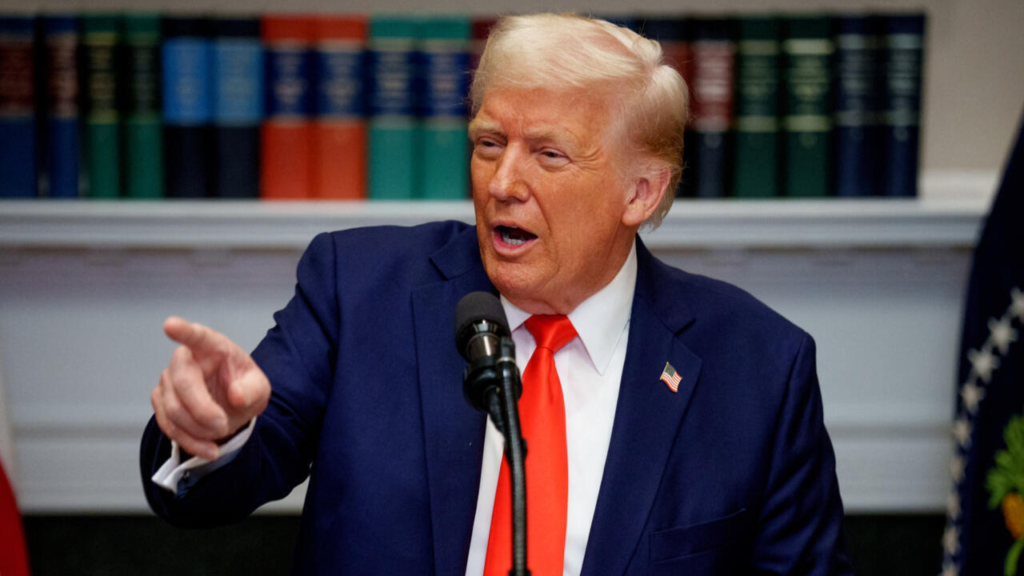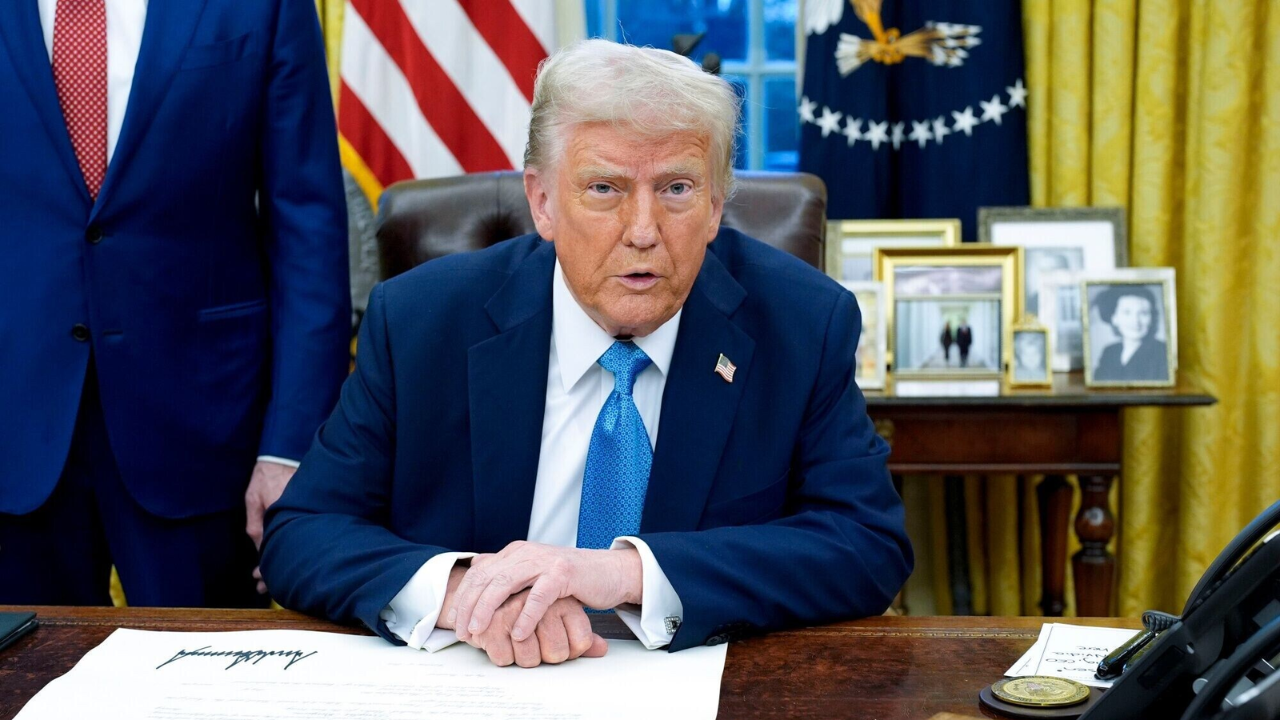Former President Donald Trump took to Truth Social on Sunday to assert that no country will be exempt from the newly announced tariffs, clarifying the confusion that arose after electronics appeared to be temporarily spared.
“NOBODY is getting ‘off the hook’ for the unfair Trade Balances and Non-Monetary Tariff Barriers that other Countries have used against us—especially not China, which by far treats us the worst!” Trump wrote in an all-caps message.
The clarification came after a notice late Friday led many to believe gadgets like smartphones and laptops had escaped Trump’s sweeping tariff hike, including the 125% import tax on Chinese goods and the 10% global tariffs.
However, the Trump administration clarified on Sunday that while those electronics won’t fall under the global or China-specific tariffs immediately, they’re not exempt. Instead, they’re being moved into a different category of tariffs focused on national security.
“There was no Tariff ‘exception’ announced on Friday,” Trump said. “These products are subject to the existing 20% Fentanyl Tariffs, and they are just moving to a different Tariff ‘bucket’.”
He added that semiconductors and the entire electronics supply chain will be examined under upcoming National Security Tariff Investigations.
Trump emphasized the U.S. will no longer be “held hostage” by other countries, particularly “hostile trading nations like China,” accusing Beijing of doing “everything within its power to disrespect the American people.”
The update follows confusion stemming from Friday’s notice, which suggested electronics like iPhones and laptops might escape the tariff wave.
That notion was swiftly reversed by Commerce Secretary Howard Lutnick, who appeared on ABC News’ This Week to confirm that those products are still very much in the administration’s crosshairs.
“Those products are going to be part of the semiconductor sectoral tariffs which are coming,” Lutnick said. “They’ll have a special focused type of tariff to make sure that those products get reshored.”
Lutnick clarified that the electronics are only excluded from the initial global and China-specific tariffs because they will fall under a different, more targeted tariff policy set to be rolled out within the next couple of months.
The goal, he explained, is to incentivize manufacturers to relocate production to the United States.
“This is not a permanent exemption,” he stressed.

The Friday notice had temporarily excluded tech products such as smartphones, laptops, hard drives, memory chips, and processors—items that are rarely manufactured in the U.S.—from Trump’s new tariff plan.
Experts quickly pointed out the practical hurdles of reshoring production. According to Evercore ISI, over 80% of all Apple products are made in China, including the majority of iPads and more than half of Mac computers.
The news of potential tariffs on electronics has already taken a toll. Following Trump’s announcement, Apple’s market value reportedly fell by $640 billion.
While the administration’s Friday notice led to brief market relief, it was always unclear whether the electronics exclusion would hold.
Analysts noted it likely stemmed from technical trade rules that prevent overlapping tariffs, suggesting that new levies were still on the horizon.
Lutnick’s confirmation Sunday solidified that the “exemption” is only a delay.
Currently, industry-specific tariffs under the Trump plan stand at 25%, but there is still no word on what the final rates will be for semiconductors, chipmaking tools, and consumer electronics.
Relocating electronics manufacturing to the U.S. is widely viewed as a daunting and expensive undertaking.
Bank of America Securities analyst Wamsi Mohan estimated that building the iPhone 16 Pro Max in the U.S. would nearly double its price, from $1,199 to $2,300. Wedbush Securities analyst Dan Ives suggested it could go as high as $3,500 per unit.
The cost difference largely comes down to labor. Manufacturing an iPhone in the U.S. could cost $200 per unit in labor alone, compared to just $40 in China.
There’s also a shortage of highly skilled tooling engineers in the U.S.—a gap Apple CEO Tim Cook has highlighted multiple times. While China has a deep talent pool in this area, the U.S. significantly lags.
As the tariff policy intensifies, Apple is already working to stay ahead of disruptions. The company reportedly chartered flights to ship 1.5 million iPhones from its factories in India to the U.S., aiming to avoid delays and extra costs.
This rapid response highlights Apple’s dependence on its global supply chain—and the enormous challenge of reshaping it overnight.
Disclaimer- Our team has thoroughly fact-checked this article to ensure its accuracy and maintain its credibility. We are committed to providing honest and reliable content for our readers.






